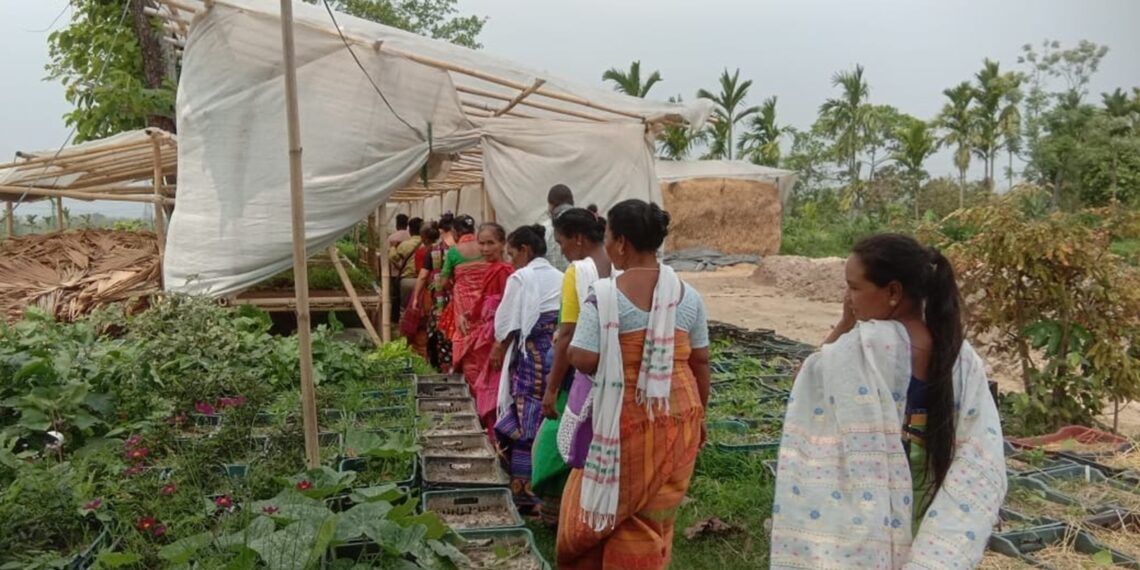GUWAHATI: In a bid to empower women affected by the human-elephant conflict (HEC), a training cum exposure visit was organised for the women of Badlapara village in Udalguri district to Pabhoi Greens at Biswanath Charilai, on Monday.
The initiative was designed to provide these women with a deeper understanding of establishing and managing a homestead garden and nursery.
For many of the participants, it was their first opportunity to step out of their village homes.
This initiative is part of Aaranyak’s ongoing project, “Community-based Integrated Approach to Facilitate Human-Elephant Coexistence and Biodiversity Conservation” in the district under the UNDP-GEF Small Grant Programme and Ministry of Environment Forest & Climate Change (MoEFCC), implemented by TERI.
During the exposure visit, the HEC-affected women were introduced to various farming techniques, including zero tillage farming, paddy cum fish cultivation, tissue culture, seed conservation methods, and biopesticides derived from panchagavya, jivamrit, cow urine, and neem.
This exposure visit provided the women with practical farming techniques and served as a model for sustainable practices that can be integrated into their farming systems.
They were guided through the entire process from field to seed collection, preservation, and packaging.
Additionally, they learned about land preparation, post-harvest management, fisheries farming, paddy cultivation, paddy cum fish cultivation, and vermicompost preparation.
Magrita Mochahary, one of the participants, expressed her motivation to implement similar practices on her own after the visit.
The programme was led and coordinated by senior Aaranyak official Jayanta Kumar Pathak, along with the participation of other officials including Bobby Nath, Arup Kumar Das, Dr Banasree Sharma, Rabiya Daimary, Bikas Tossa, and Haben Mochahary.
Earlier on March 4, the women had the chance to interact with Neelam Dutta, the entrepreneur behind Pabhoi Greens and recipient of the Assam Gaurav Award 2023, who serves as an exemplary figure in this field of entrepreneurship.
Homestead gardens play a crucial role in forest and biodiversity conservation, contributing significantly to increasing forest cover, reducing forest dependency, and sustaining livelihoods.















